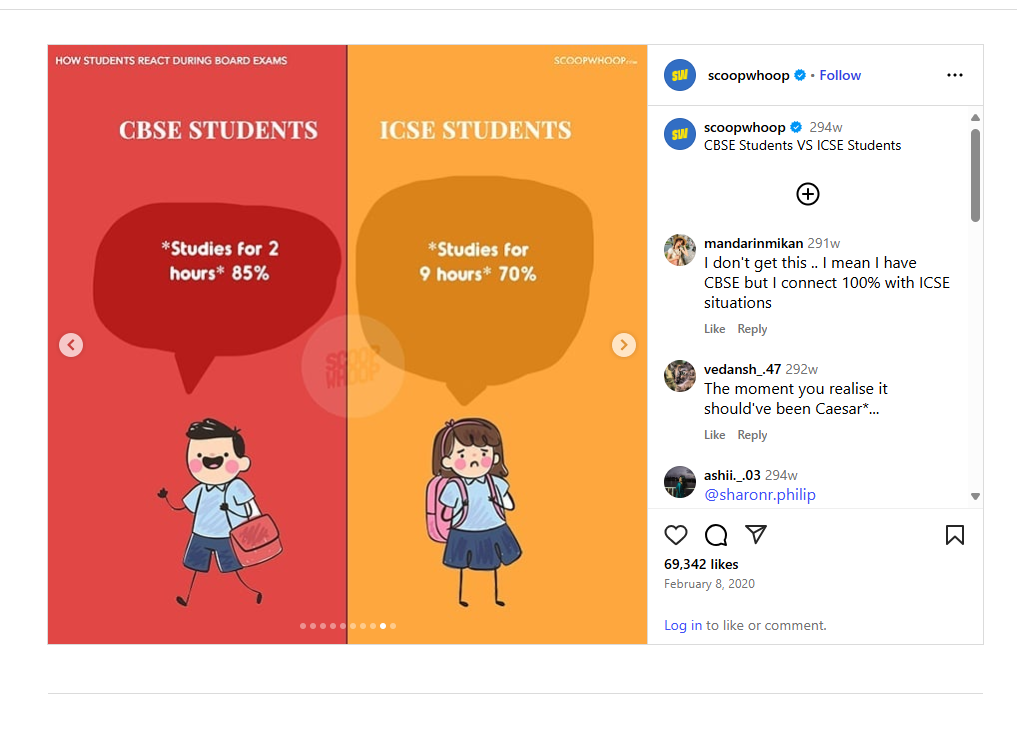CBSE vs ICSE: Syllabus Comparison & Pros & Cons
Confused between CBSE and ICSE? Explore a detailed comparison of their syllabi, pros and cons, and discover which board better prepares students for competitive exams like JEE, NEET, UPSC, CLAT, and CUET.
JOBS AND EDUCATION
CBSE vs ICSE: Which Board is Better for Competitive Exams?
Every year, thousands of Indian students stand at an important crossroads—choosing the right school board. The decision between CBSE (Central Board of Secondary Education) and ICSE (Indian Certificate of Secondary Education) is not just about textbooks or exams; it can shape a student’s future in India’s most competitive entrance tests like JEE, NEET, UPSC, and CUET.
While CBSE is often seen as a shortcut to exam success, ICSE is praised for its depth and holistic education. But which one truly gives students the edge in competitive exams? Let’s compare them in detail.
Why the Choice of Board Matters in Competitive Exams
Competitive exams in India are highly demanding. They require:
Strong fundamentals in core subjects
Speed and accuracy in solving questions
Analytical and logical reasoning skills
Good communication and comprehension skills
Since the school curriculum forms the base of preparation, the right board can make a significant difference.
CBSE advantage: Closer alignment with JEE, NEET, CUET.
ICSE advantage: Stronger focus on language, reasoning, and analytical depth, useful for exams like UPSC, CLAT, SAT, GRE.
CBSE: Streamlined for Competitive Exam Success
🔑 Key Features of CBSE
Aligned with JEE/NEET: Direct mapping with NCERT syllabus, which is the basis for most entrance exams.
Standardized Curriculum: Same syllabus across India, ensuring consistency.
NCERT Textbooks: Foundation for JEE, NEET, and CUET questions.
Focus on Core Subjects: Simplified approach to Maths, Physics, Chemistry, Biology.
Reduced Exam Stress: New reforms like two-exam formats (from 2026) reduce pressure.
📌 Example from Student Experience
A CBSE student, Neha, shared:
"I wanted to pursue engineering but was struggling earlier. Switching to CBSE gave me clarity since the curriculum directly focused on JEE. NCERT helped me strengthen my basics, and I felt more confident."
📌 Expert Opinion
Dr. Nitesh Shah, Education Specialist:
"CBSE is often better for students targeting exams like NEET or JEE, as the syllabus is closely aligned. It offers flexibility, recognition, and easier transfers across India."
ICSE: Depth, Rigor, and Holistic Development
🔑 Key Features of ICSE
Comprehensive Curriculum: Covers languages, arts, science, and mathematics in depth.
Emphasis on English: Builds strong communication and writing skills.
Critical Thinking: Encourages analysis instead of rote memorization.
Global Recognition: Highly valued by international universities.
Versatility: Equips students for diverse fields beyond engineering and medicine.
📌 Example from Teacher Insight
An ICSE teacher noted:
"Our curriculum is detailed and comprehensive. However, students preparing for JEE/NEET often need extra coaching because the ICSE syllabus doesn’t perfectly align with entrance exams."
CBSE or ICSE: Which is Better for JEE and NEET?
CBSE clearly has the edge.
Exams like JEE and NEET are based on NCERT textbooks, which CBSE follows.
ICSE students can also crack these exams but usually need extra coaching to bridge gaps.
👉 Verdict: For careers in engineering and medicine, CBSE is the smarter choice.
CBSE or ICSE: Which is Better for UPSC, CLAT, SAT?
ICSE has the advantage in exams requiring strong English, descriptive writing, and analytical skills.
ICSE students are better prepared for UPSC essays, CLAT legal reasoning, SAT, GRE, and GMAT.
CBSE students may require additional training in advanced English writing.
👉 Verdict: For civil services, law, and international studies, ICSE is stronger.
Pros and Cons of CBSE and ICSE
✅ Pros of CBSE
Perfect alignment with competitive exams (JEE/NEET).
Standardized and recognized across India.
Coaching resources match syllabus.
Lower exam stress.
❌ Cons of CBSE
Less focus on English and humanities.
Encourages rote learning in some schools.
Limited exposure to broader subjects.
✅ Pros of ICSE
Excellent English and analytical skills.
Balanced curriculum (science, commerce, arts).
Global recognition for higher education.
Promotes conceptual clarity.
❌ Cons of ICSE
Not directly aligned with JEE/NEET.
Heavier syllabus, more academic pressure.
Limited number of schools compared to CBSE.
Final Verdict: Which Board Should You Choose?
The choice depends on your career goal:
Choose CBSE if your focus is on engineering, medicine, or technical fields (JEE, NEET, CUET).
Choose ICSE if you want civil services, law, or international opportunities (UPSC, CLAT, SAT, GRE).
Both boards provide quality education, but their approach to competitive exam readiness is different. CBSE gives a direct advantage for science-based exams, while ICSE builds well-rounded skills for broader opportunities.
FAQs on CBSE vs ICSE Competitive Exams
Q1. Is CBSE easier than ICSE?
Yes. CBSE is simpler and exam-focused, while ICSE is more detailed and demanding.
Q2. Which board is best for JEE and NEET?
CBSE, since both exams are based on NCERT textbooks.
Q3. Is ICSE better for UPSC?
Yes. ICSE builds strong English and writing skills needed for UPSC mains and essays.
Q4. Which board is more recognized abroad?
ICSE has higher international recognition.
Q5. Can ICSE students crack JEE/NEET?
Yes, but they need additional coaching to align with NCERT-based exams.


